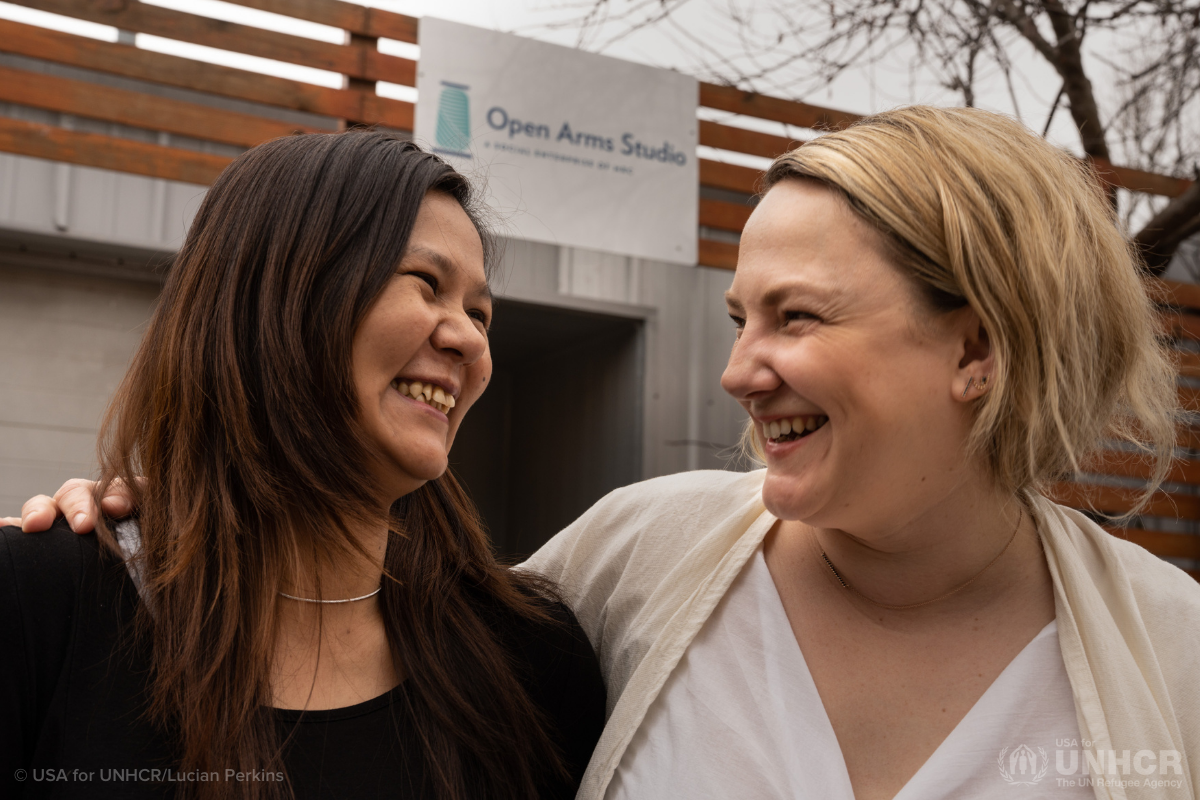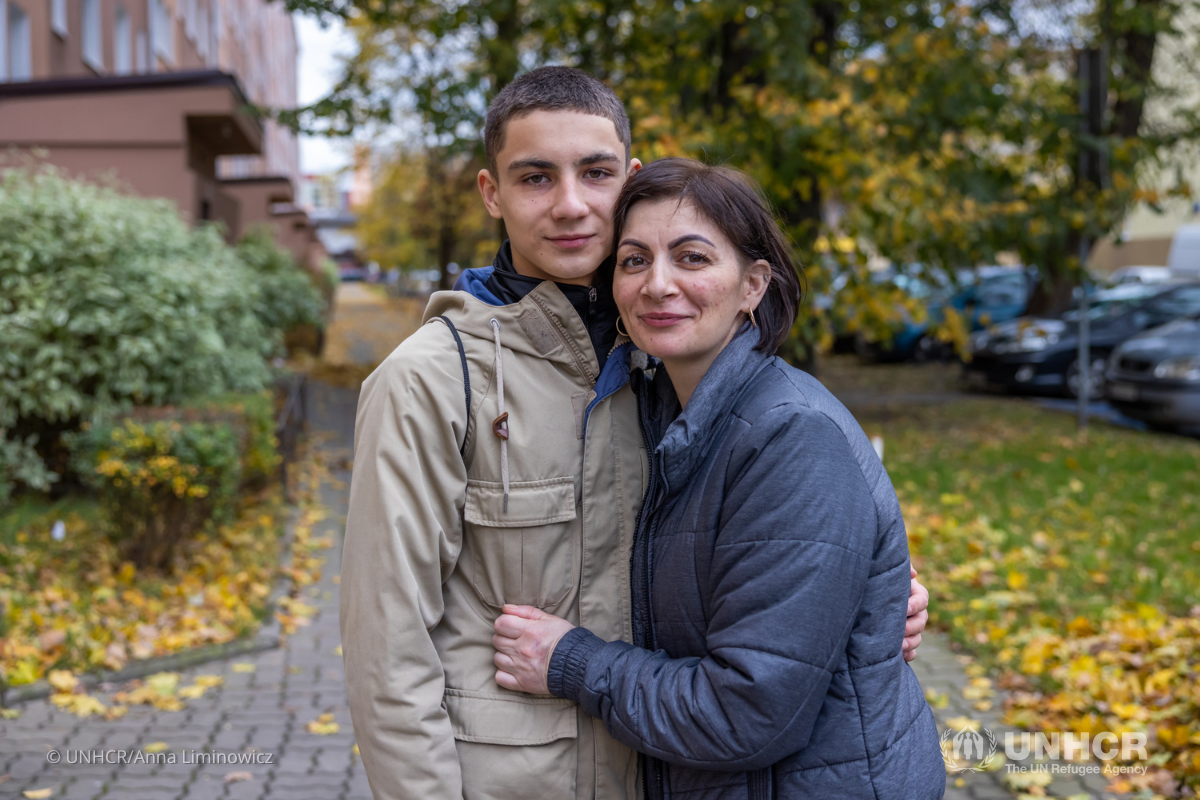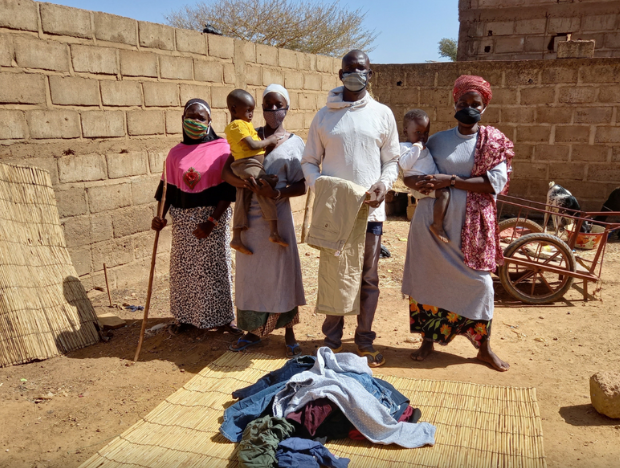Three ways to be an active ally to refugees

Last week being in New York as world leaders gathered for the UN General Assembly felt like an inflection point. The limited number of in-person events, in contrast to last year’s all-virtual Assembly, afforded a sense of normalcy returning to the annual gathering; yet in reality we are still a long way from the world being on track to recover from the pandemic. Rightly so, the issue of vaccine equity was front and center during UNGA 2021, coupled with the dire urgency of climate change in a year when we have experienced not only record-breaking temperatures, but wildfires, flooding and droughts around the globe.
As a Board Member and a CEO of an organization whose mission is to protect refugees and empower them with hope and opportunity, we are acutely aware of how these two global issues, among many others, disproportionately impact refugee communities. At 82.4 million -- more than 1 percent of the global population -- the number of forcibly displaced people is the highest in history. Additionally, at home in the United States we are currently grappling with complex challenges connected to this crisis. Resettling refugees in the U.S. continues to be a polarizing flashpoint in some areas of the country. Following cuts by the previous Administration, U.S. government and refugee resettlement agencies need to rebuild their capacity in order to support the current Administration’s goal of admitting 125,000 refugees to America in 2022. And we are now preparing for the arrival of over 65,000 Afghan evacuees in the upcoming weeks and months. This is a time of great need and also of great opportunity for the private sector to demonstrate its allyship with refugees and displaced populations.
With this backdrop, we are grateful to have had the opportunity to convene an incredible group of business, nonprofit and community leaders -- many of whom are former refugees -- for a discussion on refugee allyship at this year’s Concordia Summit. During our time together we had an opportunity to unpack some of these challenges and share our experiences with the aim of becoming more knowledgeable in our efforts as allies with refugee communities. Through the insightful ideas and contributions of all participants, three imperatives for allyship with refugee communities came through loud and clear:
Refugees must be at the table
The practice of designing policy and programs about any community without equal representation and participation of those with lived experience should be long gone. While this is changing for many social, economic and cultural issues, we still have a ways to go, including in the refugee ally community. Current and former refugees know best the challenges and solutions, and we need their expertise to get it right. As one participant in our discussion commented, “if you want to solve a problem, start by learning from people who are closest to the problem”.
Thinking of refugees as beneficiaries misses the mark
Refugees, as all people, are more than their stories of challenge or tragedy. The time is long overdue for this narrative to change -- We need to understand in a holistic way the value that the newest members of our communities bring to our communities. Refugees have skills and experience to offer paired with strength and determination, as demonstrated in the fact that 10 percent of resettled refugees are self-employed, compared to 9 percent of the total U.S. population and in 2017 immigrant and refugee- owned businesses employed over 8 million Americans. The tech and health sectors are often shortchanged, with many refugees in these fields forced to take jobs outside of their professions in these areas due to licensing restrictions or language barriers that could be overcome with a bit of training. As partners to the Businesses for Refugees pledge, we are working to overcome some of these issues through the goal of securing 500 businesses to commit to supporting resettled refugees through hiring and other actions.
Every company has a role to play
While financial support is always needed, it is just one of many ways the private sector can be an ally to refugee communities. Every company has an opportunity to consider what their greatest assets are and how they can be used in allyship with refugees. Or, as another colleague stated, “‘what can we each uniquely bring?”. There are many examples, starting with hiring and training resettled refugees particularly through recruiting from nontraditional sources. Offering opportunities for employees to volunteer is another, especially skills-based volunteerism. On a related note, donating pro bono expertise such as legal, accounting, and mental health services are always in demand along with in kind donations of products. Finally, companies and their employees can be important advocates in using their collective voices to push for pro-refugee policies on global, national, state and local levels.
Some of the above approaches may take collaboration and creativity to establish, but through our decades of experience we have seen that by and large Americans want to help -- they just need to understand how. More and more we are seeing the private, nonprofit, and government sectors come together in allyship; in fact, Welcome.US is a newly-launched, excellent example of an initiative which embraces all of the imperatives outlined above. In many ways our challenges are more dire than ever before, but no match for our collective ingenuity, resources and determination -- if mobilized. We hope you will join the call to action at hand for all of us.
Anne-Marie Grey is the Executive Director and CEO of USA for UNHCR. Biar Atem is the founder of the South Sudan Center of America, a real estate business owner, and a Board Member of USA for UNHCR and Refugee Congress.


